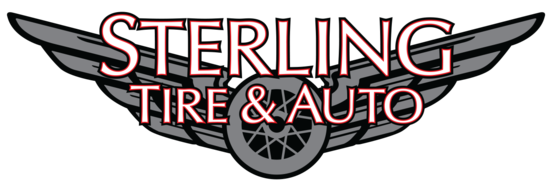Fuel Injection Keeps Getting Better for Sterling Heights Motorists
March 26, 2020
Sterling Heights residents know that engines burn fuel to operate. Fuel is pumped from your fuel tank to your engine where it is squirted—or injected—into your engine's cylinders. This is the function of the fuel injectors.
There are two ways to inject fuel into an engine. Fuel needs air to burn, so in the first method, fuel is injected into a port and allowed to mix with air—and before it is drawn into the cylinders. In the second method, fuel is injected directly into the cylinders and mixes with air after it enters the engine.
Direct injection engines burn fuel more efficiently than conventional engines. Some models can deliver the power of a V8 with the economy of a V6.
For example, in one family of engines, the conventional version (a V6) delivers about 250 horsepower. The direct injection version delivers over 300 horsepower and gets about the same . The turbocharged version delivers 350 horsepower.
Why the big difference in power? Direct injection systems allow fuel to be squirted into the engine at hundreds of times the pressure of a conventional engine. This atomizes the fuel better (breaks it down into tinier droplets), which means more of it gets burned, which translates to more power for your engine. It also results in cleaner emissions and improved fuel economy.
Fuel injectors are precision instruments. They have to deliver the right amount of fuel at exactly the time the engine needs it. They are also engineered to inject fuel with a specific spray pattern. This spray pattern allows for maximum fuel efficiency and proper atomization.
Direct injection engines require a much higher degree of precision than conventional engines. For this reason, they are equipped with more sophisticated computers.
When fuel injectors get dirty, their precision drops off. The spray pattern won't be precise, and the timing of fuel delivery may be off. This decreases fuel efficiency and fuel economy for Sterling Heights drivers as well as delivering less power to the engine.
Fuel injectors are not cheap to replace. Direct injection fuel injectors are even more expensive. And we're talking a mortgage payment to buy a set of new fuel injectors for a diesel engine.
So keeping your fuel injectors clean is just good auto advice for Sterling Heights residents. The best way to do this is to change your air and fuel filters regularly and practice other habits of good vehicle care and preventive maintenance at Sterling Tire & Auto in Sterling Heights. Cleaning additives in your fuel can also help.
If you do end up with gum or varnish in your fuel system, you'll need a professional fuel system cleaning. This will clean out your whole system, including the injectors. The good news is that with proper maintenance, your fuel injectors will last for a long time.
Sterling Tire & Auto
34701 Van Dyke Rd
Sterling Heights, Michigan 48312
586-264-7775
Need Service?
More articles from Sterling Tire & Auto

If the Shoe Fits (Brake Shoe Replacement [Rear])
February 22, 2026
When it comes to brakes on your vehicle, we all know how important it is to keep them working well because they are vital safety equipment. After all, if you cant slow down and stop, you cant drive safely. While many vehicles use what are called disc brakes, theres another type of brakes that ... More

Rumble from Down Under (Muffler Replacement)
February 15, 2026
Weve all noticed them at one time or another on the street: a car or truck that drives by and the deep roar from their exhaust system sounds like a drag racer on the line. But what happens when that rumble is coming from under YOUR vehicle? Well, it could be a sign your muffler needs attention. ... More

Go with the Flow (MAF Sensor Replacement)
February 8, 2026
If your vehicle has an internal combustion engine, it depends on two things to make propulsion power for you to be able to motor on down the road: fuel and air. The engine mixes the two in just the right proportion so that they can be ignited, creating a series of tiny explosions that are coordi... More








